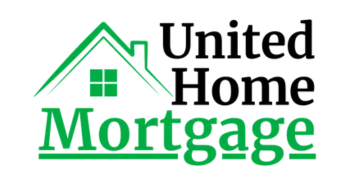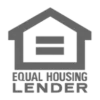First Time Home Buyer Programs
Welcome First Time Home Buyers!
At United Home Mortgage, we understand that buying your first home is a significant milestone. Our mission is to make this journey as smooth and affordable as possible with our tailored first-time home buyer programs in Colorado
Comprehensive First Time Buyer Programs
Our programs are designed to provide you with the financial support and resources needed to make homeownership accessible:
CHFA and CHAC Partnerships: We partner with Colorado Housing and Finance Authority (CHFA) and Colorado Housing Assistance Corporation (CHAC) to offer additional support and resources.
Flexible Credit Requirements: We accommodate a wide range of financial situations with our flexible credit requirements.
Competitive Interest Rates: Secure affordable monthly payments with our competitive interest rates.
Educational Resources: Access comprehensive educational resources to guide you through the home buying process.
Why Choose United Home Mortgage
Expert Guidance: Our experienced team provides personalized support throughout the entire home buying process.
Down Payment Assistance Programs: Access various programs to help you get started with little to no down payment.
Closing Cost Assistance: Benefit from programs designed to help cover your closing costs.
Low Down Payment Options: Explore mortgage programs that require a low down payment.

An Introduction to Different Types of Mortgages
"You can’t build a great building on a weak foundation. You must have a solid foundation if you're going to have a strong superstructure." — Gordon B. Hinckley
An Introduction to Different Types of Mortgages
So, you're thinking about buying a home? That's fantastic! Whether you're a first-time buyer or a seasoned homeowner, understanding the different types of mortgages is crucial to making an informed decision. After all, your mortgage is the foundation of your home-buying journey—get it right, and everything else will fall into place.
Mortgages come in many flavors, each with its own set of rules, benefits, and quirks. In this blog post, we'll take you on a guided tour through the wonderful world of mortgages. We'll explore the various types available, who they’re best suited for, and how to choose the one that’s right for you. By the end of this read, you'll feel like a mortgage expert—or at least a mortgage connoisseur!
The Basics: What Is a Mortgage?
Before we dive into the different types of mortgages, let's start with the basics. A mortgage is essentially a loan used to purchase a home or other real estate. The property itself acts as collateral for the loan, meaning if you don’t make your payments, the lender can take the property back through foreclosure. Sounds scary, but don't worry—we're here to make sure that doesn’t happen!
Mortgages typically involve regular monthly payments that include both principal (the amount you borrowed) and interest (the cost of borrowing). Over time, as you pay down the loan, you'll build equity in your home. Equity is like the part of the home you truly own, as opposed to the part the bank still owns. Eventually, with diligence and timely payments, you'll pay off your mortgage and own your home free and clear—now that’s something to look forward to!
Fixed-Rate Mortgages: The Steady Eddie of Home Loans
If you like stability and predictability, a fixed-rate mortgage might just be your cup of tea. With a fixed-rate mortgage, your interest rate—and, consequently, your monthly payment—remains the same for the entire term of the loan. Whether you're a fan of 15-year sprints or 30-year marathons, a fixed-rate mortgage gives you the peace of mind of knowing exactly what you'll pay each month.
Pros of Fixed-Rate Mortgages:
Predictable Payments: No surprises here—your monthly payment remains the same, making budgeting a breeze.
Protection Against Rising Rates: If interest rates rise, your rate stays the same. You’ll never have to worry about a sudden spike in your payments.
Cons of Fixed-Rate Mortgages:
Higher Initial Rates: Fixed-rate mortgages typically start with a higher interest rate compared to adjustable-rate mortgages (ARMs).
Less Flexibility: If interest rates fall, you’re stuck with your original rate unless you refinance (which can involve costs).
Who It’s Best For:
Fixed-rate mortgages are ideal for buyers who plan to stay in their home for a long time and prefer the stability of knowing their monthly payments won’t change.
Adjustable-Rate Mortgages (ARMs): A Roller Coaster Ride (in a Good Way!)
Feeling a little adventurous? An adjustable-rate mortgage (ARM) might be just what you need. ARMs come with an interest rate that adjusts periodically based on market conditions. Most ARMs start with a fixed rate for a set period—say, five years—before adjusting annually.
Example:
A 5/1 ARM means you’ll have a fixed rate for the first five years, and then the rate will adjust once a year thereafter.
Pros of Adjustable-Rate Mortgages:
Lower Initial Rates: ARMs typically start with lower rates than fixed-rate mortgages, which can save you money in the early years.
Flexibility: If you plan to move or refinance before the adjustable period begins, you could take advantage of lower rates without worrying about future adjustments.
Cons of Adjustable-Rate Mortgages:
Uncertainty: Once the fixed period ends, your rate can go up or down based on market conditions, which means your payments could increase.
Complexity: ARMs are more complicated than fixed-rate mortgages, and it’s important to understand how rate adjustments work.
Who It’s Best For:
ARMs are great for buyers who expect to move, sell, or refinance within the initial fixed-rate period or those who are comfortable with the possibility of future rate adjustments.
FHA Loans: The First-Time Homebuyer’s Best Friend
For many first-time homebuyers, FHA loans are like a warm, welcoming hug. Insured by the Federal Housing Administration (FHA), these loans are designed to make homeownership accessible to people who might not qualify for conventional loans due to limited savings or lower credit scores.
Pros of FHA Loans:
Low Down Payment: You can get an FHA loan with as little as 3.5% down, making it easier to buy a home without a huge upfront investment.
Lenient Credit Requirements: FHA loans are more forgiving for those with lower credit scores, often requiring a minimum score of 580.
Assumable Loans: FHA loans are assumable, meaning if you sell your home, the buyer can take over your mortgage—potentially a great selling point if rates have risen.
Cons of FHA Loans:
Mortgage Insurance Premiums (MIP): FHA loans require both an upfront and annual mortgage insurance premium, which adds to the cost of the loan.
Property Standards: The home must meet strict FHA appraisal guidelines, which can limit your options in certain markets.
Who It’s Best For:
FHA loans are ideal for first-time homebuyers or those with limited savings or lower credit scores who need a more accessible path to homeownership.
VA Loans: A Salute to Service
If you’re a veteran, active-duty service member, or eligible spouse, the VA loan is a benefit you’ve earned through your service. Backed by the Department of Veterans Affairs (VA), VA loans offer some of the most favorable terms available in the mortgage market.
Pros of VA Loans:
No Down Payment: VA loans often require no down payment, making it easier to buy a home without upfront cash.
No PMI: Unlike conventional and FHA loans, VA loans don’t require private mortgage insurance, saving you money every month.
Competitive Interest Rates: VA loans typically offer lower interest rates compared to other types of mortgages.
Cons of VA Loans:
Funding Fee: While VA loans don’t require PMI, they do come with a one-time funding fee, which can be rolled into the loan or paid upfront.
Eligibility Requirements: VA loans are only available to eligible veterans, service members, and their spouses.
Who It’s Best For:
VA loans are perfect for veterans, active-duty service members, and eligible spouses who want to take advantage of the benefits they’ve earned through service.
USDA Loans: Home Sweet (Rural) Home
If you’re dreaming of a home in the countryside, USDA loans might be the golden ticket. Backed by the U.S. Department of Agriculture, these loans are designed to help people buy homes in rural and some suburban areas.
Pros of USDA Loans:
No Down Payment: USDA loans often require no down payment, making them an attractive option for buyers in eligible areas.
Low Interest Rates: These loans offer competitive interest rates, helping keep monthly payments affordable.
Lower Mortgage Insurance Costs: While USDA loans do require mortgage insurance, the cost is generally lower than FHA or conventional loans.
Cons of USDA Loans:
Geographic Restrictions: USDA loans are only available in designated rural and suburban areas, which may limit your options.
Income Limits: There are income limits for USDA loans, so they may not be an option if you earn above a certain threshold.
Who It’s Best For:
USDA loans are great for buyers looking to purchase a home in rural or suburban areas who want to take advantage of low down payments and competitive interest rates.
Jumbo Loans: Go Big or Go Home
For those with big dreams—and even bigger home budgets—jumbo loans are the way to go. These loans exceed the conforming loan limits set by Fannie Mae and Freddie Mac, making them ideal for luxury homes or properties in high-cost areas.
Pros of Jumbo Loans:
Higher Loan Amounts: Jumbo loans allow you to finance luxury homes or properties in expensive markets that exceed conforming loan limits.
Competitive Interest Rates: Despite their size, jumbo loans often come with competitive interest rates, especially for borrowers with excellent credit.
Cons of Jumbo Loans:
Stricter Requirements: Jumbo loans typically require higher credit scores (often 700 or above), larger down payments (usually 20% or more), and lower debt-to-income ratios.
Higher Down Payments: Be prepared to put down a significant amount of cash—20% is standard, but some lenders may require even more.
Who It’s Best For:
Jumbo loans are ideal for buyers purchasing high-value properties in competitive markets who have strong credit and ample savings.
Conventional Loans: The Gold Standard
Conventional loans are like the Swiss Army knife of mortgages—versatile, reliable, and widely used. Unlike FHA, VA, or USDA loans, conventional loans aren’t backed by a government agency, but they still offer great terms for qualified buyers.
Pros of Conventional Loans:
Flexibility: Conventional loans can be used for primary residences, second homes, or investment properties.
No Upfront Mortgage Insurance: Unlike FHA loans, conventional loans don’t require an upfront mortgage insurance premium.
Potential for Lower Costs: If you can put down 20% or more, conventional loans can eliminate the need for private mortgage insurance (PMI).
Wide Range of Lenders: Conventional loans are offered by many lenders, giving you more options to shop around for the best terms.
Cons of Conventional Loans:
Stricter Requirements: Conventional loans often require higher credit scores and lower debt-to-income ratios compared to government-backed loans.
Private Mortgage Insurance (PMI): If your down payment is less than 20%, you'll likely need to pay PMI, which adds to your monthly costs.
Who It’s Best For: Conventional loans are ideal for buyers with strong credit and a solid down payment who are looking for flexibility in terms of property types and loan terms.
Balloon Mortgages: A Big Payment at the End of the Tunnel
Balloon mortgages are a bit like the surprise party of home loans—everything seems normal until, at the end of the term, you're hit with a big, balloon-sized payment. These loans typically feature lower monthly payments for a set period, followed by a large lump-sum payment due at the end.
Pros of Balloon Mortgages:
Lower Initial Payments: Balloon mortgages often start with lower monthly payments, making them more affordable in the short term.
Potential for Refinancing: If you plan to sell or refinance before the balloon payment is due, you can take advantage of lower payments without worrying about the big payoff.
Cons of Balloon Mortgages:
Risk of High Payments: If you can’t refinance or sell the home before the balloon payment is due, you could be faced with a substantial financial burden.
Limited Availability: Balloon mortgages are less common and may be harder to find.
Who It’s Best For: Balloon mortgages are best for buyers who are confident they can sell, refinance, or pay off the loan before the balloon payment is due.
Interest-Only Mortgages: Pay Now or Pay Later
Interest-only mortgages allow you to pay only the interest on the loan for a set period, usually 5-10 years. After that, you start paying both principal and interest, which can significantly increase your monthly payments.
Pros of Interest-Only Mortgages:
Lower Initial Payments: By paying only the interest, you can keep your monthly payments low during the interest-only period.
Flexibility: If your income is expected to increase or you plan to sell before the principal payments begin, an interest-only mortgage can be a smart choice.
Cons of Interest-Only Mortgages:
Higher Future Payments: Once the interest-only period ends, your payments will increase, potentially making the loan unaffordable.
No Equity Buildup: Since you’re not paying down the principal, you won’t build equity in the home during the interest-only period.
Who It’s Best For: Interest-only mortgages are ideal for buyers with fluctuating incomes or those planning to sell or refinance before the interest-only period ends.
Construction Loans: Building Your Dream from the Ground Up
Planning to build your dream home? A construction loan is designed to finance the cost of building a new home from the ground up. These loans are typically short-term and convert to a standard mortgage once the construction is complete.
Pros of Construction Loans:
Custom-Built Homes: Construction loans allow you to build a home tailored to your specific needs and preferences.
Interest-Only During Construction: Many construction loans offer interest-only payments during the construction phase, helping you manage costs.
Cons of Construction Loans:
Complex Process: Getting a construction loan involves more steps and documentation than a standard mortgage.
Higher Costs: Construction loans often come with higher interest rates and fees compared to traditional mortgages.
Who It’s Best For: Construction loans are perfect for buyers who want to build a custom home and are prepared for the complexities of the construction process.
Reverse Mortgages: Turn Your Home Equity into Cash
For homeowners aged 62 and older, a reverse mortgage allows you to convert your home’s equity into cash while still living in the home. The loan doesn’t need to be repaid until you sell the home, move out, or pass away.
Pros of Reverse Mortgages:
No Monthly Payments: You don’t have to make monthly payments on a reverse mortgage, giving you access to your home’s equity without increasing your expenses.
Access to Cash: Reverse mortgages provide a way to access the equity you’ve built in your home, which can be used for living expenses, healthcare, or other needs.
Cons of Reverse Mortgages:
Reduced Equity: Since you’re borrowing against your home’s equity, you’ll have less equity to leave to your heirs.
Fees and Costs: Reverse mortgages often come with higher fees and interest rates compared to traditional mortgages.
Who It’s Best For: Reverse mortgages are ideal for older homeowners who want to tap into their home’s equity without selling or making monthly payments.
Bridge Loans: Bridging the Gap Between Buying and Selling
A bridge loan is a short-term loan that helps you buy a new home before selling your current one. It provides temporary financing until you can sell your old home and pay off the loan.
Pros of Bridge Loans:
Convenience: Bridge loans allow you to buy a new home without waiting to sell your current one, making the transition smoother.
Flexible Repayment: You can repay the bridge loan once your old home sells, reducing financial pressure.
Cons of Bridge Loans:
Higher Interest Rates: Bridge loans often come with higher interest rates compared to traditional mortgages.
Risk of Double Payments: If your old home doesn’t sell quickly, you could be stuck making payments on both the bridge loan and your new mortgage.
Who It’s Best For: Bridge loans are perfect for buyers who need to purchase a new home before selling their current one and are confident in their ability to sell quickly.
Conclusion: Finding the Right Mortgage for You
Choosing the right mortgage is a crucial step in your home-buying journey. Whether you’re drawn to the stability of a fixed-rate mortgage, the flexibility of an ARM, or the unique benefits of FHA, VA, or USDA loans, there’s a mortgage out there that’s perfect for you.
At United Home Mortgage, we’re here to help you navigate the complex world of mortgages with confidence. Our team of experienced mortgage professionals is dedicated to finding the best loan options tailored to your needs. We understand that buying a home is one of the most significant financial decisions you’ll make, and we’re committed to making the process as smooth and stress-free as possible.
Ready to take the next step? Schedule your one-on-one mortgage consultation today, and let us help you find the perfect mortgage to build your future on.
United Home Mortgage Network Inc TM DBA United Home Mortgage TM NMLS 1984776 @ Copyright 2024 - All Rights Reserved







